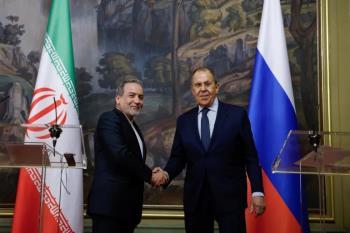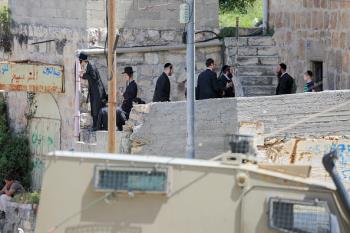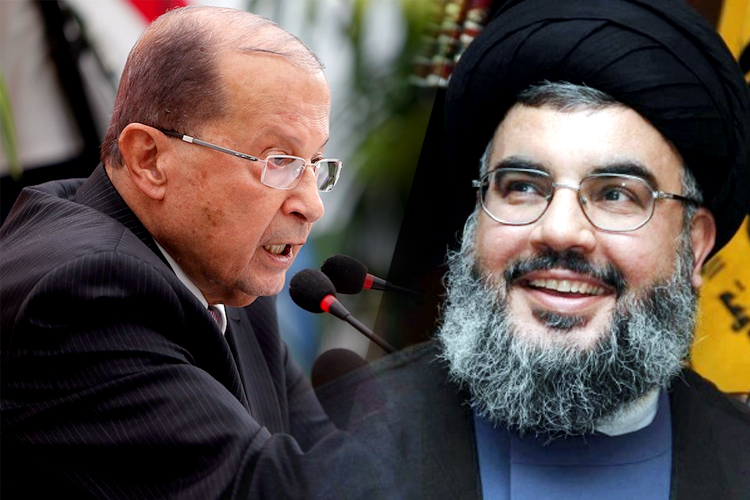Alwaght- The proverb says “all’s fair in love and war”, meaning that it is acceptable to be deceitful in these situations to achieve one’s aim. The saying has expanded its connotations to international politics, the playground of treachery and dishonesty.
While the rest of world leaders do not play fairly in the game of politics, utilizing all sorts of tools for their endgame, Hezbollah Leader Sayyed Hassan Nasrallah epitomizes a political approach of honesty and ethics; in other words, that all’s NOT fair in war and politics.
Political Ethics
Hezbollah Secretary-General Sayyed Hassan Nasrallah has reiterated his support for the leader of the Free Patriotic Movement Michel Aoun in his presidential bid.
He dismissed speculations that the resistance group would alter its choice and support MP Sleiman Frangieh, head of the Marada Movement, who was nominated by the Saudi-backed Future Movement.
Tackling the 20-month-long presidential standoff, Sayyed Nasrallah delivered a televised speech on Friday, in which his values of loyalty, ethics, and candidness resurfaced on the political scene, a place where there is seldom room for such qualities against the balance of power.
“Based on our political vision and in a show of loyalty to Gen. Aoun’s positions, and in light of political considerations, we have adopted the option of supporting this candidacy. We have told him [Aoun] that as long as you are a candidate for the presidency, we support your candidacy,” Sayyed Nasrallah clarified.
“We have ethical and political commitment to supporting Gen. Aoun’s candidacy. We are committed to the confidence and basis on which we have agreed. We honor our commitments even if we lose in politics.”
Only in the event of Aoun stepping back, would Hezbollah support Frangieh in the presidential election. This is what the leader made clear as he criticized Lebanese Forces Chief Samir Geagea for casting doubt over Hezbollah’s commitment to Aoun. Geagea, is supporting wartime foe Aoun, in a bid to undermine Frangieh in the race. Saad Hariri’s motives for supporting Frangieh are also dubious.
Yet in the middle of Lebanon’s political treachery, side-changing, and prioritization of interests; amid a cloud of ambiguity that covers the underlying intentions of the country’s political parties, Sayyed Nasrallah is a piercing ray of light that illuminates through the window of truthfulness, who knows how to keep a promise, and whose political ethics has garnered him respect from friends and foes alike.
War Morals
In an opinion article published on Electronic Intifada, Palestinian-American political writer, Remi Kanazi, concluded that Hezbollah has achieved high fighting morals.
“If Hezbollah were a military, given Western standards, it would certainly be the most moral in the world.”
“During Israel’s five week offensive… Hezbollah killed three Israeli soldiers for every one Israeli civilian. In contrast, Israeli forces killed more than 1000 Lebanese civilians during the onslaught…,” he added.
Since then, Hezbollah has engaged in the Syrian conflict where the nature, the geography, and the variables of the confrontations are unconventional. However, the resistance group has maintained the code of conducts it has always respected.
Stemming from Islamic military jurisprudence, Hezbollah has adhered to the concepts of self-defence, the protection of Muslims, discipline, avoiding injuring non-combatants, using minimum necessary force, and humane treatment of war prisoners.
Conclusively, the widespread idea that all is fair in warfare for the purpose of prevailing is not a trait of Hezbollah’s which, unlike military forces such as the Israeli Occupation Forces or ISIS, has not killed arbitrarily, injured, maimed, starved, or tortured innocents to win a battle.
Even in highly charged situations, the resistance has not d r o pped its ethics and morals, standing as an example of credibility and consciences. Sayyed Nasrallah’s latest conscientious stance underscores that the end does not always justify the means.



























